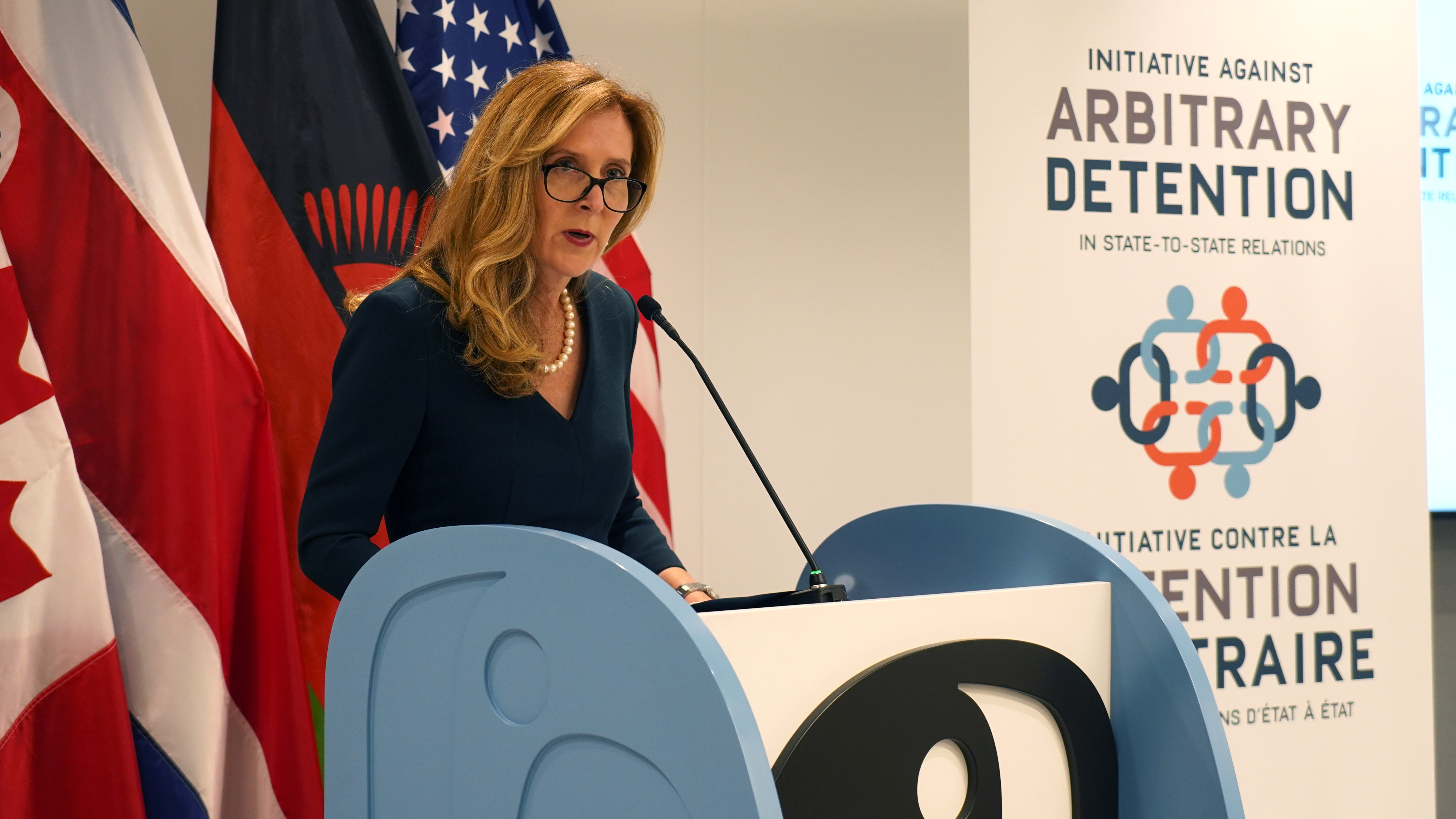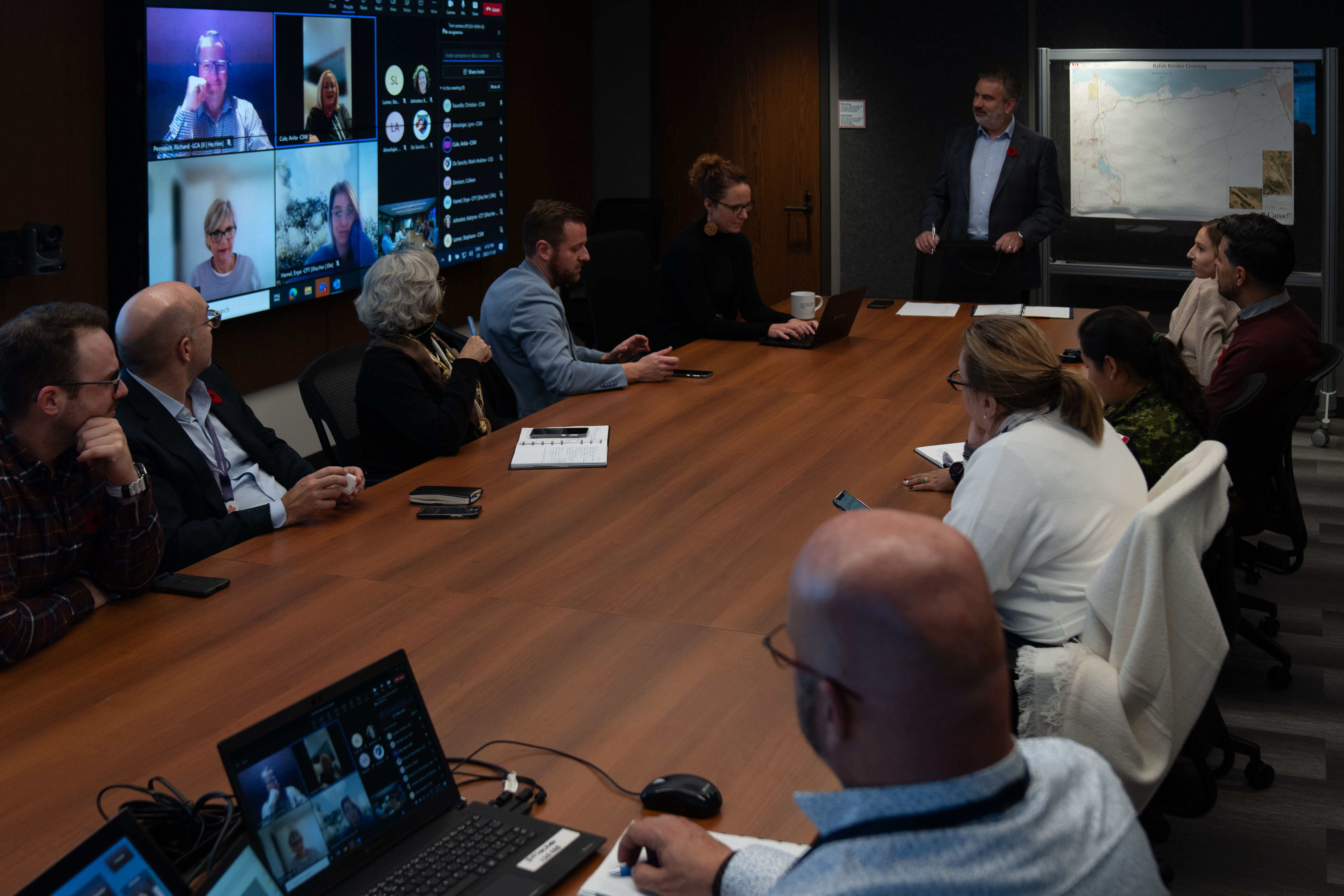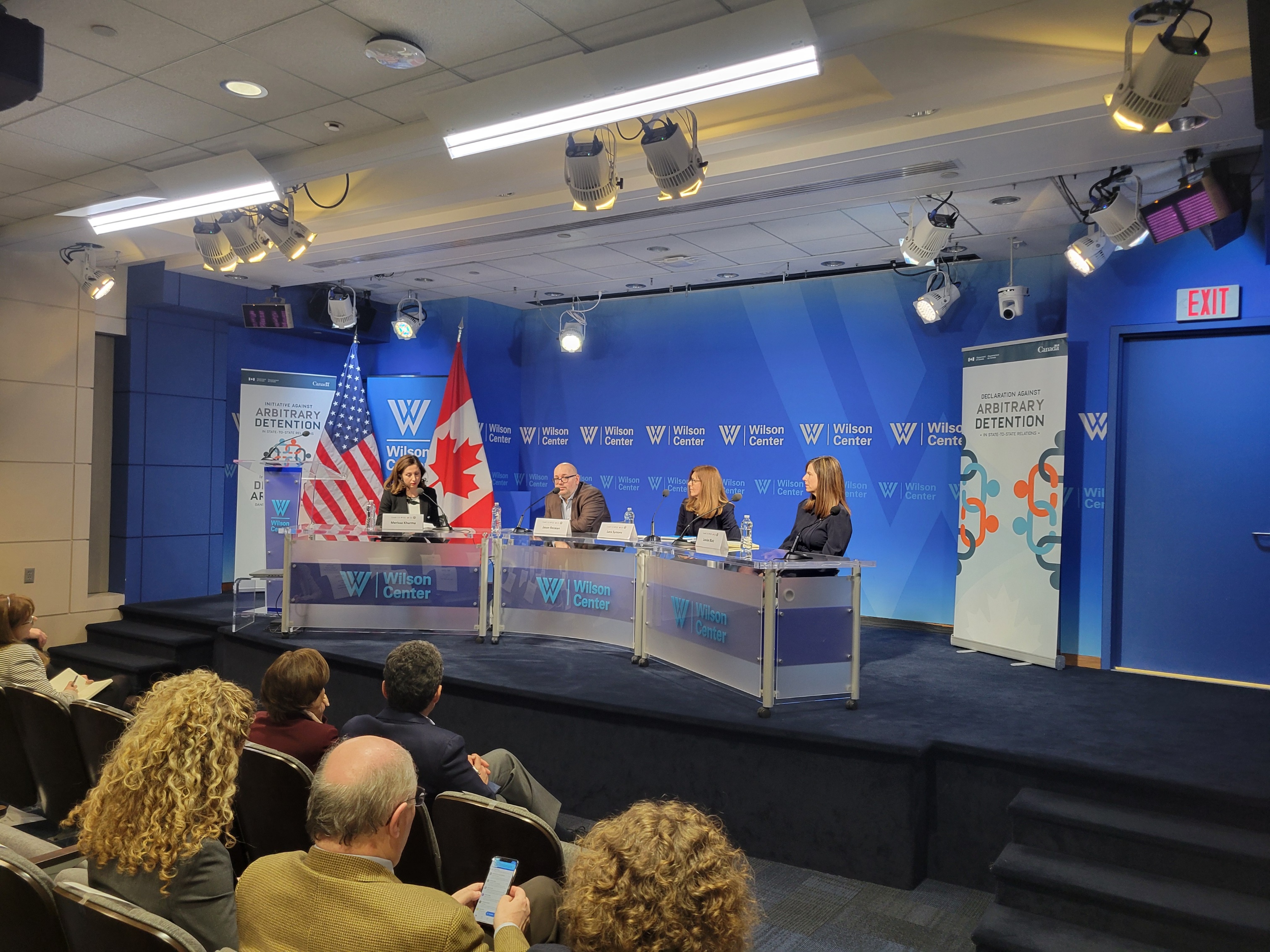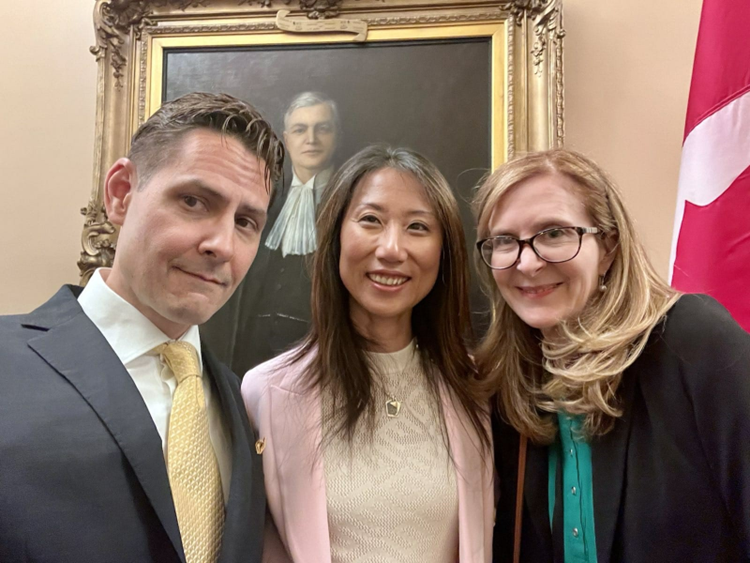Amplifying the Voice of Canadian Hostages and their Families

Since the launch of the Declaration Against Arbitrary Detention in State-to-State Relations in February 2021, Canada’s commitment to put a stop to the use of hostage diplomacy remains steadfast . Yet, the global geopolitical environment has become even more fraught, putting citizens who work, travel and study abroad at greater risk of becoming pawns or bargaining chips in disputes between states, or as leverage for non-state actors such as terrorist groups. The need to maintain a holistic approach, while establishing a new focal point for Canadians caught in these dire situations came into sharp focus in October 2023, as the world learned that over 250 men, women and children, including several Canadians, had been taken hostage or gone missing in the context of the crisis in Israel, the West Bank and the Gaza Strip.
Thus, in November 2023, Minister of Foreign Affairs Mélanie Joly designated a Senior Official for Hostage Affairs (SOHA) to lead Global Affairs Canada’s concerted consular efforts and increase capacity to respond to cases of hostage-taking by both state and non-state actors, with a particular focus on supporting victims, survivors and their families.
“In such a highly charged environment, it was clear that we would benefit greatly from having someone on the ground who had the mandate to engage with allies and regional partners, with the interest of affected Canadians and their families at heart,” says Global Affairs Canada’s Assistant Deputy Minister of Consular, Security and Emergency Management, Julie Sunday. Ms. Sunday travelled to Israel, Egypt and Qatar shortly after being named SOHA in November 2023. “It was important for me to personally reach out to these families and ensure that I understood their needs and concerns, so I could effectively communicate them to the highest levels of Canada’s government,” she added.
The SOHA designation enables Canada to be readily involved in conversations among officials with similar mandates in other governments. It provides Canada with greater convening power on hostage issues and complements Canada’s global leadership to address hostage diplomacy through the Initiative Against Arbitrary Detention in State-to-State Relations. SOHA’s mandate to lead Canada’s response to situations of hostage taking by state and non-state actors is supported by existing consular, advocacy and critical incident response tools and resources, which are used to respond to a complex range of hostage situations abroad.

“Since no two cases are the same, it is imperative for our teams to adopt a strategic and tailored approach that considers the unique complexities of these kinds of hostage situations and provides support to the people caught in an unimaginable nightmare” explains Sunday.
Raising global awareness and solidarity
A key element of the SOHA’s role is to raise awareness, facilitate international dialogue and engagement on an issue that is not only a gross human rights violation but is also a serious international security threat. Canada’s resolve to ensure that global partners work together to stop this practice was evidenced this past September during the High-Level Dialogue on Arbitrary Detention in State-to-State Relations, co-hosted jointly by the foreign ministers of Canada, Costa Rica, Malawi and the United States, on the margins of the 78th session of the United Nations General Assembly. This Dialogue brought together Foreign Ministers, international representatives, former arbitrary detainees, and subject-matter experts and underscored the importance of global solidarity to address this issue.
More recently, in February 2024, Global Affairs Canada worked with partners to convene an in-depth expert discussion on hostage diplomacy as an international security concern, together with the United States’ Special Presidential Envoy for Hostage Affairs, the Woodrow Wilson International Center for Scholars and the Center for Strategic and International Studies in Washington D.C. This discussion brought together academics, civil society advocates and government representatives who all shared concerns about the grave implications of hostage diplomacy, not only for individuals, but also for the international system built on trust, rule of law and mutual respect between states. Experts also reiterated the importance of developing collective-response and deterrence mechanisms, an important area of focus for Canada.

Minister Joly, Woodrow Wilson Centre for International Scholars - February 13, 2024
“Within Canada, we are also sharpening our tools to better respond when our citizens are arbitrarily detained. To that end, I am pleased to share that I recently announced a new Senior Official for Hostage Affairs: Julie Sunday, who is here today. She is leading our efforts to support victims, communicate with families and engage with her international counterparts and experts.”
Indeed, Canada has made significant progress, not only in rallying the international community to stand up against hostage diplomacy, but also in re-examining its own internal set of tools, policies and mechanisms to support survivors, victims and their families, and to respond to cases when they arise.
Responding to the needs of survivors, victims and their families
Specialized aftercare and reintegration support following an individual’s return home is equally as important as efforts to secure a hostage’s release in the first place. That is why the Government of Canada continues to facilitate assistance and access to support and aftercare services for victims and survivors of hostage-taking. As part of the new SOHA mandate, Global Affairs Canada is working toward innovative and agile solutions that address the specific needs of individuals and their families. “We continue to learn from experience and refine our approach, particularly as we obtain valuable feedback from those directly affected by these egregious practices” explains Sunday.

Michael Kovrig prior to his appearance in Parliament in Ottawa on March 24, 2023.
Prolonged arbitrary detention and being held hostage can have long-lasting consequences, forcing victims and survivors to rebuild their lives and their identities from the ground up after their release. This may range from administrative challenges such as re-establishing a credit history or regaining access to now-dormant digital accounts, to much more complex issues such as re-entering the workforce and reconnecting with loved ones or navigating the implications of an arbitrary criminal conviction. This can affect their ability to obtain employment or even to travel freely outside of their home country. These are some of the issues that Global Affairs Canada, under the leadership of the SOHA, is exploring with the support of a dedicated and experienced team, as well as through growing partnerships with international, multilateral and civil society partners. “Given all the challenges that victims and survivors must contend with, even post-release, adopting a trauma informed approach to our work is absolutely critical and we continue to work to expand our capacities in this area,” said Sunday.
Ultimately, the wellbeing and safety of the victims and survivors of arbitrary detention and hostage-taking is always at the heart of Global Affairs Canada’s international advocacy, case management and reintegration support efforts. The SOHA designation will continue to help facilitate improvement and innovation of the programs, policies and tools that Canada has in place, and enable enhanced engagement on hostage issues internationally.
- Date Modified: